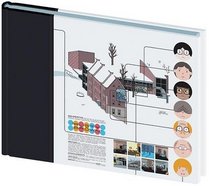Search -
The ACME Novelty Library #16
The ACME Novelty Library 16
Author:
After four years of almost exclusively repackaging his sophomoric early work for the book trade, the children's entertainer and award-winning calligrapher F. C. Ware returns to his groundbreaking 1990s cartoon series "The ACME Novelty Library," a nearly decade-long publishing experiment which more or less single-handedly demonstrated the redempt... more »
Author:
After four years of almost exclusively repackaging his sophomoric early work for the book trade, the children's entertainer and award-winning calligrapher F. C. Ware returns to his groundbreaking 1990s cartoon series "The ACME Novelty Library," a nearly decade-long publishing experiment which more or less single-handedly demonstrated the redempt... more »
ISBN-13: 9781560975137
ISBN-10: 156097513X
Publication Date: 12/12/2005
Pages: 64
Rating: 1
ISBN-10: 156097513X
Publication Date: 12/12/2005
Pages: 64
Rating: 1
4 stars, based on 1 rating
Publisher: ACME Novelty Library
Book Type: Hardcover
Members Wishing: 3
Reviews: Amazon | Write a Review
Book Type: Hardcover
Members Wishing: 3
Reviews: Amazon | Write a Review
Genres:




